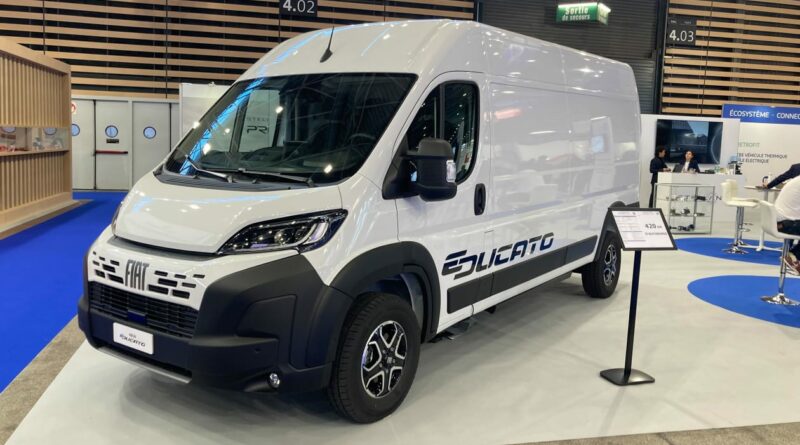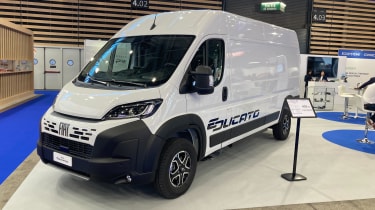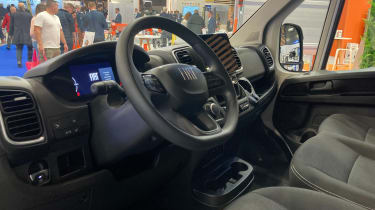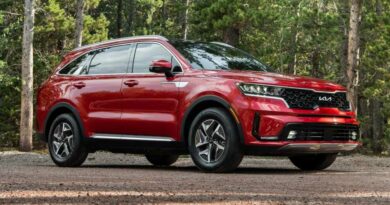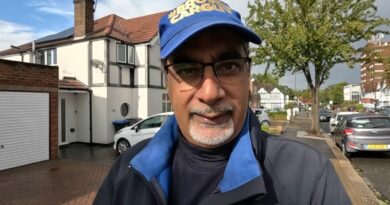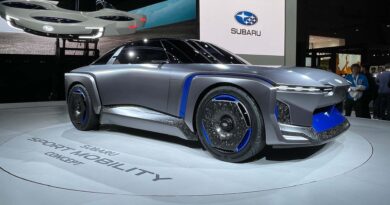Revised Fiat E-Ducato van follows hot on the heels of all-new Renault Master
The updated Fiat E-Ducato is the latest in a wave of new vans from Stellantis
Just as Renault unveils a new Master van, Fiat launches a larger battery capacity E-Ducato at the same commercial vehicle show. Literally a few stands over from the new Renault panel van, a revised version of the Fiat E-Ducato has been unveiled with a much larger battery capacity than the new Master.
As if to steal some thunder from rival van producer Renault as it launches its all-new model, Fiat debuted a 110kWh version of its long-running E-Ducato, which dwarfs the 87kWh (useable) Master E-Tech.
This larger capacity battery means the revised E-Ducato has a WLTP range of 261 miles, leap-frogging the 255-mile Master E-Tech before it has even been able to get its towel down.
Rubbing salt into the wounds is the news that Fiat will also be offering this large van with a hydrogen fuel cell version to go toe-to-toe with the hydrogen equivalent Master that’s currently in development.
On the outside, the revised Fiat E-Ducato gains redesigned lights front and rear, along with a new style front bumper. Inside there’s a new 7-inch digital instrument cluster and larger 10-inch infotainment system, plus a new gear selector design and climate control buttons.
Underneath, battery capacity is up from 79kWh to 110kWh, increasing the range from 175 miles WLTP combined up to 261 miles. There’s no word as of yet to say if the latest version will receive a more powerful EV motor than the 121bhp version already installed in the current van.
There’s also no word on whether or not the charging speed has been increased from the 50kW speed of the current model, although we anticipate that it should be improved upon in order to compensate for the significant increase in capacity.
Also unveiled is the extension of the partnership with Qinomic to retrofit older medium-sized vans with electric power in order for operators to continue to operate in city centres with low-emission zones. It aims to help fleet customers decarbonise their fleets by providing an electric solution that gives them enough battery capacity for up to 120 miles of range (subject to WLTP certification). The package should be fast charge capable, and maintain a 900kg payload capacity. The first country to trial this solution will be France in 2024, before it is rolled out to other countries.
Looking for a zero-emission van? These are the best electric vans you can buy…
Source: Read Full Article
